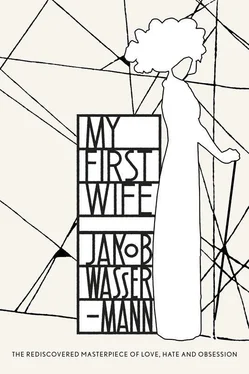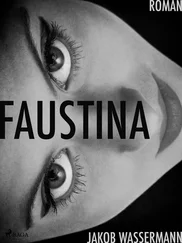IN COMPANY
I was no longer in touch with my former friends and associates. Either the relationship had come to a natural end, or they had jobs and offices to go to, or they had disappeared into an intellectual underworld. Many of them described me as a cold-hearted user of people. The ones who most especially said it were the ones who had used me almost all up. People are voracious. Give anything of yourself to them, they want to chew your bones; put up a fight, they call you inconstant or feckless. I had a reputation for arrogance. In fact I was excruciatingly shy and still am. But what I couldn’t stand was the complacent ignorance of others with respect to my person and my work, a conceited tolerance, of the sort one might show to a neighbour who has put up a fortress wall round his little handkerchief garden.
Ganna preached worldliness to me. She said I should get down from my ivory tower from time to time. ‘You need to see people and gain fresh impressions,’ she said. I had nothing against going out and seeing people, but unfortunately the ones she had in mind were those who kept salons or gave parties and wanted to collect celebrities. It was her ambition to secure me an appropriate position in the world; but what she thought of as the world was just the financial-cum-artistic circle where she had spent time as a girl. She was proud of being Frau Alexander Herzog and wanted to enjoy her social status. Each and any invitation was an honorific confirmation of the fact. But for the rung of the ladder where she liked to be, she lacked a little discrimination. If she heard her name being whispered behind her, the pleasant sensation tingled into the roots of her hair. When a lawyer or university lecturer kissed her hand, she beamed. When she had a head of section presiding at her dinner table, she was as excited as a young actress being given a plum role. I was perfectly willing to allow all these various gentlemen the credit that Ganna so prodigally lavished on them. I was a little fish. My sense of self was poorly developed. Intellectual attainments have never let me become too full of myself. I thought Ganna, being experienced in the ways of her circle, would do the right thing. I allowed myself to be dragged along. I went solemnly into ‘people’s houses’, as I sometimes sarcastically put it. From time to time I would suggest that really we ought to reciprocate. Ganna insisted that wasn’t necessary, it wasn’t expected from an artist. Since it suited me to believe that, I believed it, and thereby put myself on the same level as a tenor who was only invited because his name appeared in the paper — or even a little lower, because the tenor at least sang for his supper. Offering people hospitality would have been difficult for us; we ate so terribly badly. When Ganna organized a family meal, which was about the most we ever did, there would be strange giggles about the taste and the puzzling identity of a dish or other. Ganna had no idea how bad it was. She didn’t care what was set in front of her. She would launch into a half-cooked potato and a pineapple with the same enthusiastic lack of awareness.
That evening we were guests of the bank director Bugatto, who at the time was a big wheel in the world of high finance. I can remember a whole series of unpleasant feelings besieging me, and I see Ganna in her element. She is forming a circle. A wreath of professors, doctors, lawyers, town councillors, manufacturers and some of their ladies surrounds her. She makes bold assertions and tries to back them up. They are shallow paradoxes, things she has got out of books, but she craves the attention; she pulls it off. Such an original mind, people say. I am happy for her; it means she will be in a good mood for days to come. I like it when her good qualities are recognized. I have an easier time with her. The only embarrassing thing is her way of referring to ‘my husband’ all the time. I hate that possessive.
I get unbearably bored. The sitting around; the stupid questions and answers, the vulgar gossip. And Ganna’s ingratiating chit-chat — I can no longer deny that she is making an exhibition of herself; her warbling, her giddiness, her provincial coquettishness: I suffer, it pains me, can’t she feel my shame, my ambivalent position, her own exaggeration, her prostration before this portfolio of pearls, dresses, investments and titles? No, she doesn’t. She rises like yeast. She blooms. Two or three times I approach her and suggest going home. Mutely she implores me for leave to stay. She is having such a wonderful time. On the way home she asks me what I had against them. They had all been so charming to her, only I with my bad mood had spoiled the lovely evening.
She doesn’t get it, what am I to do? She carries on digging around and complaining until I lose my patience and say something intemperate and find myself in the wrong. Ganna has been waiting for just that. She exploits her advantage to the full. She says I quite systematically go about making enemies, and that I therefore have no business complaining or being surprised at my lack of readers. A poisonous observation, which isn’t any the less hurtful because it crudely conflates two separate categories. Riposte, counter, Ganna takes nothing back. It goes on and on, to the point that at two in the morning the Ohnegrolls bang a broom handle against their ceiling to get some quiet. Ganna ignores them. She sinks her teeth into every word of mine. This is no more warbling and fluting like there was in the plush halls of the dignitaries and the rentiers ; this is anger and a vicious style of argumentation that will stoop to any rhetorical trick to force the opponent to his knees. The crazy thing is that I practically am on my knees. That always used to astonish me. When I think about it today I can’t help believing that sensuality is somewhere involved, the blind urge that contains something of the desire to batter, and to stun.
HOTHOUSE OF EMOTIONS
With horror I recollect the day little Ferry fell ill. At the least sign of fever Ganna would be beside herself. First, the nanny was subjected to harsh questioning. If she was guilty of some mistake in the care or feeding of the baby, the storm would break over her head and she would be dismissed on the spot. (When the temperature went down she was quietly reinstated.) In such instances, Ganna’s brain would assemble all conceivable illnesses and they would race through her imagination in a terrifying rout. Every hyperbole was justified by the imagined danger. But the danger can be avoided if you recognize the cause early enough. A human being, Ganna likes to say, has everything in his own hands, happiness and unhappiness, life and death. If he sticks to the advice of doctors and the prescriptions of science, then not much can happen to him. The biggest threat are germs. The fight against germs, the way she sees it, is like hunting fleas. You’re immune if you learn the doctors’ and professors’ trick of taming and dressing these wicked little creatures. Since Ganna is capable of saying in almost every instance where and how a certain illness was caught, there is always blame involved. If she feels a rheumatic twinge, she will remember weeks later that I talked her out of wearing her fur when on a certain day — I’ve forgotten all about it — we went to visit Auntie Claire. Ganna doesn’t let nature get away with anything. She believes in doctors the way a devout Catholic believes in Holy Communion. At the slightest suggestion of a symptom the doctor is sent for, a specialist even, for whatever it is. Any and every doctor in her eyes is a sort of all-powerful bourgeois God. But there’s trouble for this Godhead if he doesn’t bring about an instant cure. Then we get blaspheming and the daughter of the heathen kraal will send for a fresh god.
I often struggled against it. I lectured her, warned her, implored her. In vain. These are emotional excesses, I would say to myself then, she exists in a sort of emotional hothouse. The day-to-day is humdrum; emotions will eat it up. Emotion becomes the measure and mirror of the world. To impede Ganna and change the direction of her affect is as hopeless as it would be to ask a storm to kindly take itself off somewhere else. I began to be afraid of her lack of moderation. Since my strength was invested elsewhere, I didn’t have it to draw on when I needed it with her. Sometimes I simply shut my eyes when I saw things that depressed or alarmed me to see. I tried to see the whole Ganna experience as my destiny in life. The more reality weighed on me, the more the picture I had made of Ganna took the weight from me. It was of brass, not readily destroyed. A demonic person, I told myself. That was the first flash of the insight that later, much later, came over me like a brand. Demonic; not a word one can do all that much with. An excuse word, a false coin. It’s a facile explanation for the inexplicable, a charge of spiritual inadequacy or unrighteousness laid against the door of an unknown power. At that time, Ganna hadn’t gone off the rails. I could still have got her in my power if I’d been careful, if I’d been alert, if I’d been tougher.
Читать дальше







![Jakob Wassermann - Issue Does Not Exist],errors:{](/books/585068/jakob-wassermann-issue-does-not-exist-errors-thumb.webp)




